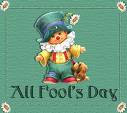
On April 21 we finally had the opportunity to meet some of the students at Millis High School, with whom you have been exchanging letters since the beginning of the school year. It was a really rewarding experience. Your American pals had a very good time and thanks to your explanations, they could learn many things about Lebrija and flamenco music. They also enjoyed the tour around the town.
I would like to thank you for your colaboration and your effort to make them feel at easy in a foreign country. And I would like to congratulate you on your ability to communicate with them both in English and Spanish.
I hope you also had a good time with them and of course, I hope you keep in touch with them.














